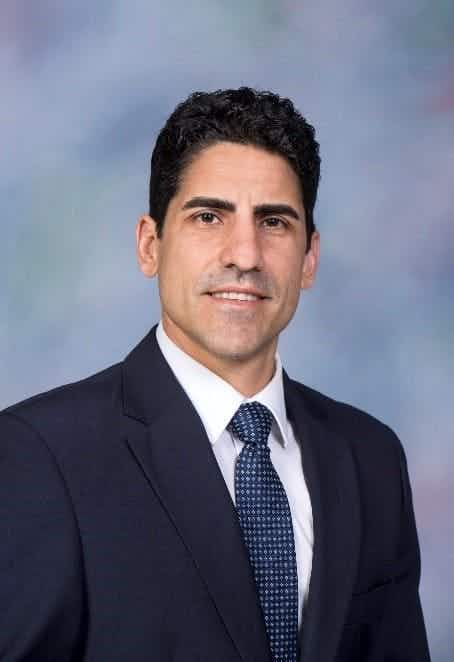Engineering: Solving Real-World Problems
Engineering is as old as the pyramids, and as new as our robotic workforce. This field’s trail of innovation has taken us from the beginning of time to modern-day advances. In this course, you’ll learn how engineers work to solve real-world problems, learn the fundamental concepts, and explore the many engineering disciplines. Finally, you’ll complete a Capstone Project where you'll explore how various engineering disciplines work together to solve real-world problems.
Program Dates
Multi-length courses available throughout the year
Eligibility
For students ages 13 and up
Fees
$1,795
Delve Into the World of Engineering
Explore the Many Engineering Disciplines
Understand the core concepts, tools, and ideas that inform all engineering disciplines. Learn the essential science and math skills required to identify problems, then design and build solutions.
Learn the Fundamentals of Chemical and Biological Engineering
Study examples of chemical engineering and bioengineering innovations. Meet chemical engineers and bioengineers, and learn about the challenges they are working to solve.
Discover the World of Mechanical and Materials Engineering
Delve into the fundamentals of mechanical and materials engineering, and how they solve engineering design problems. Gain insight into the knowledge and skills mechanical and material engineers use daily.
Understand Electrical and Computer Engineering
Learn the fundamental concepts of electrical and computer engineering. Discover specific innovations developed by electrical and computer engineers, and ascertain career opportunities within these disciplines.
Examine Civil and Environmental Engineering
Review the fundamental concepts in civil and environmental engineering. Study current challenges that civil and environmental engineers are working to solve, transforming the world around us.
Explore Potential Careers in Engineering
Topics covered in this course will help you define the various engineering disciplines and explore the many careers available like aerospace, computer, nuclear, or chemical engineering.
How You Will Benefit
- Gain a comprehensive understanding of the foundational concepts that serve as the building blocks across various engineering disciplines.
- Understand how engineers are working to solve real-world challenges such as climate change.
- Delve into the foundational science and math required to be an engineer: physics, chemistry, mechanics, calculus.
- Discover how engineers solve problems: analyze, design, build.
- Hear from real-world engineers and learn about the different career paths available.

Three Learning Advantages Designed for You
Capstone Project
The course culminates with a Capstone project where you will expand on a module assignment or choose a new challenge to explore. Think about the various engineering disciplines and how they might work together to solve various problems. Using what you’ve learned, answer these questions:
- What other engineering disciplines could contribute to the challenge identified?
- What other applications could emerge in seemingly unrelated areas from the engineering innovations that result from the project?
Mentoring
You’ll receive guidance from a mentor who can support you and deepen your learning experience. You can expect:
- Encouragement and direction on all assignments.
- Inspiration, motivation, and confidence to help you excel in your studies.
- Brainstorming and ideation to help you prepare for your capstone project.
Flexible Learning
- 100% online learning that works with your schedule.
- Flexible format: you’ll learn through video lectures that allow you to tune in anytime that works for you.
- 20-30 hours of total instruction and course work,
- Tech-forward interactions, including engaging multimedia, real-life simulations, and curated assignments.
- Guidance and support from mentors.
Apply Now for the Next Available Course
All course options have the same educational content, learning materials, and number of assignments. We are offering a condensed version of the course in order to accommodate students’ individual schedules.
Hear from Rice University

Course Designed by Rice University Faculty
Rafael Verduzco
Professor and Associate Chair, Chemical & Biomolecular Engineering Professor, Materials Science & Nanoengineering
Professor Verduzco received his Ph.D. in chemical engineering from the California Institute of Technology in 2007, studying liquid crystal polymer gels. He received his B.S. in chemical engineering from Rice University in 2001. Rafael then went on to a postdoctoral position in the Center for Nanophase Materials Sciences at the Oak Ridge National Laboratory in Tennessee, where he studied bent-core liquid crystals, water-soluble dendrimers for drug delivery, and conjugated polymeric materials for organic electronics.
The Verduzco laboratory uses a combination of polymer chemistry and multi-scale characterization tools to broadly address challenges in polymer science; and current areas of research include polymers for microbial bioelectronics, polymeric membranes for water treatment, and bottlebrush polymer additives for surface modification.
Meet Your Mentors

Emma
Received a Bachelor of Science in Mechanical Engineering. Currently pursuing a Doctorate in Biomedical Engineering.

Maya
Holds a Masters of Science degree in Space Science from Rice University and a Bachelor of Science degree in Physics.

Steven
Currently holds a Bachelor of Science in Computer Engineering and is pursuing an MS in the same field. Works at a technology company specializing in designing and producing high-resolution radar modules.
How to Apply
It’s easy. No transcripts or letters of recommendation are needed. Our application requires basic contact information for you and your parent or guardian. Then, tell us why you wish to take this course. Include your personal story through writing, video, photos—or any medium you prefer.
Begin the guided process. It should take only a few minutes to answer the questions.

Want to Know More?
Sign up for more information and we’ll be in touch.
Frequently Asked Questions
How will you be graded? What are assignments like? How much time do you have to turn around a project? When do you find out if you’re admitted? Find answers to your questions here.
Scholarships
We offer need-based scholarships for participating students who exhibit high potential and an inability to pay the full tuition.
- If you haven’t applied to the program, apply here. After submitting your application, click “Apply for a need-based scholarship” on the confirmation page to request a scholarship.
- If you’ve already applied to the program, sign in to your profile to check your scholarship status. If we don’t have a scholarship request on file, click “Apply for a need-based scholarship” to request a scholarship.